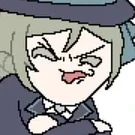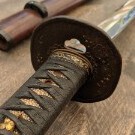Leaderboard
Popular Content
Showing content with the highest reputation on 08/30/2024 in all areas
-
6 points
-
5 points
-
It's not something made by the Japanese. In all the fakes, and all the island swords I've seen, the workmanship on this one is about the worst I've seen. It's most likely a fake, but there is a very small chance it was made in occupied lands. There is a story, I have it on file, of a POW that made swords for the guards. So, not all bad looking swords are fakes. But there is no way to tell the difference most of the time. Price? I wouldn't pay anything for this, but if you want it, that would be up to you. Less than $100. The honest fakes, those who sell them as reproductions, often ask for $150, but they look better than this.3 points
-
2 points
-
A three part interview of Paul Martin conducted by Shohei Nagatsuji of Japan-Forward.com. Interview2 points
-
There are many stories as to its meaning, why this mon was chosen, and why loved by so many families in so many arrangements.2 points
-
Late war 1995....hahaha... Thank you Bruce for your fast comment. I do not want to pay money for fakes. It will destroy any collection...2 points
-
2 points
-
Personally speaking I like the dealer's original supposition, that it could be a Christian theme. The cross would certainly look that way from a distance. If you got pulled by the authorities, though, you could accuse them of being blind, can they not see the clear Buddhist motifs along the rim and throughout? To me this is another example of built-in deniability factor. Because it treads a fine line, however, we will forever argue as to the absolute validity one way or the other. Remember we can find many Mary or Christ statues which can be reversed to become a Kannon statue, for example.2 points
-
After a lot of trial and error (mostly error) I finally got some decent photos of my katana. I have no idea how old it is, or what school it might be, but I like it.2 points
-
Thanks all. I didn't pay a ton for it: https://www.proxibid.../86283675&rfpb=0#Top2 points
-
To my eyes, both appear to be the same tsuba. Different locations and photos during its 150-175 years of existing. Pinning down a specific Yoshioka generation might be as difficult as pinning down a specific Hoan attribution. Maybe there is a text or two out there that has done it, but I either (a) have not seen it or (b) do not recall it. I believe I have seen the various generations of the Yoshioka laid out before, but I am not sure if anyone has built an answer key to which one is which generation.2 points
-
1 point
-
I know nothing about matchlocks but acquired this massive gun as part of a deal and it’s not really “me” - so time to go. Late Edo/Bakumatsu era and quite possibly unused…..in lovely condition. Many different signatures on it and I add a couple of others by this maker for reference. I am told it has features that confirms its a Samurai gun for use on horseback. Weighs a ton! Hope to see you there. Obviously UK only. Best. Colin1 point
-
Hi all, Could someone with more knowledge of tsuba motifs clarify what this Kinai tsuba motif is called. I've encountered "triple diamond" and I believe "pine bark". I thought it might be a mon, but couldn't find one like it so I'm guessing that's not right. Also, would you say those are birds or geese near where the ana would be? And are the arrows up, down, left and right just a product of the rest of the design, or could they represent something else? This is a nice katana size piece with a nicely looking and feeling patina. Appreciate all of your insights. Damon1 point
-
I will keep quiet about the blade but I do like the leatherwork.1 point
-
1 point
-
You are probably right Piers! Since any Christian iconography have to be disguised for obvious reasons, it is probable we will never know. If we can see the reference to Christian religion also will any Bakufu official, if well idden it will be also for us! Regards Luca1 point
-
Hello, I am of course not sure, but for me the tang seems post-war, but I might be wrong. Maybe others have more experience. Do you have pics from the blade? regards Klaus1 point
-
To me it looks like quadruple MATSUKAWA BISHI with 2 KARIGANE. Not unusual.1 point
-
Seems like an unusual theme but the first thing that came to my mind was onmyoji paper shikigami... Doubt this is correct though1 point
-
My bad. What I meant was that I thought there could be 2 seperate possibilities- either 1 or 2.1 point
-
@Bruce Pennington and @GeorgeLuucas, thanks for the advice, I’m not selling; but I do have a lot to think about.1 point
-
Unfortunately, I believe this is a fake. The profile and the look of the tang appears crude and not right. The shinogi into the kissaki looks off to me. More than likely not Japanese. I hate to be the bearer of bad news… And a second opinion never hurts. -Sam1 point
-
Franco is correct that there are probably many swords that are saiha that we are not aware of. After the process they would fulfill their purpose as weapons again. There are also some famous swords that have been reforged as fired caused damage in period Japan. However for more basic weaponry it would not be documented that well. I have seen some great saiha blades, and I would not have the knowledge to tell they have been reforged. Nikkō Tōshōgū has had modern smiths reforge some of their burned blades and the end result looks very good. They had a rotation of 3 tachi per turn and all of the 3 that I saw this year and 3 that I saw last year were all reforged in 1980's.1 point
-
Wonderful Arnaud! Will have to do better reading with time and some of the info is too advanced for me to grasp. Great article!1 point
-
If I have to bet I will go for Heianjo Zogan more than Yoshiro... Even though Onin or one of the Shoami branch could not be discarded. Brass hira zogan was done by many. Attribution often can be a mess... Sometimes even NBTHK have done "strange" attribution... Regards Luca1 point
-
Cisco-san, No, there's no date or kanji on the other side of the tang. No Seki stamp, no star, only the characters as shown in the picture above. Any additional opinions are welcome and very much appreciated!1 point
-
1 point
-
The one on your fuchi is 光永 (Mitsunaga) The one on the fuchi above is 光長 (also Mitsunaga, but with a different character for naga. Same pronunciation but different character).1 point
-
1 point
-
It took its time to get to me from Northern Ireland, but the Wakizashi I bought some weeks back has finally arrived. And boy do I have some questions! First some observations: Perhaps most importantly, it is mumei. The nakago is very smooth so I suspect it is actually suriage and originally a much larger blade. The file marks also look a bit different from what I've seen before. It has clearly been heavily abused recently (scratches everywhere, and what looks like amateur polishing on the edge). Unfortunately because of the scratches it is really hard to make out what's happening with the hamon in the kissaki, however I don't think the hamon runs off here (although it may be close) It has no shinogi. It has no yokote. It seems to have a thick kasane, especially for its size. It is very wide for its size, wider than my other katana in fact! Its kissaki isn't very pointy. I suspect the tip has been broken off, but even if that has happened, the overall shape seems unusual to me - it doesn't seem to get gradually narrower like my other nihonto do. In fact, with its shape, width, and weight it feels a lot like a machete when in hand... Next some pictures: See what I mean about the nakago being smooth/shiny as if part of a larger blade: Hopefully this shows quite how thick this: Pics of the hamon (attempted anyway): So does anyone know what I've bought? I'm struggling to imagine it having been a larger katana without a shinogi/shinogi ji or with its geometry/thickness. Is it possibly a shortened polearm? (I know little about them). As always, all opinions welcome (I'm still trying to learn as much as I can)! Many thanks, George1 point
-
1 point
-
Or a banana...... If memory serves me right such exaggerated Sori is a sign of re-tempering.1 point
-
That's à piece of science and knowledge! Thank you for sharing, Éric VD1 point
-
I'm fairly sure the boshi is fine and doesn't run off. Nothing there suggests that.1 point
-
It's fascinating. I didn't know, I'm pretty sure I didn't understand everything. I would read it again. thanks OceanoNox.1 point
-
Hey, Dave....small world.....my mum's brother was a sapper in the 2nd Field Coy. in the Royal Australian Engineers in the Borneo campaign. He was at the surrender at Labuan and brought back a Type 98 Gunto (gendaito but unsignes and undated). When I was a kid he told me that he had to chase the Japanese soldier 20 miles through the jungle to get that sword....but he told me 20 years later that in fact, the unit held a raffle after the surrender and he was lucky enough to win this sword. My cousins still have it. Regards,1 point
-
1 point
-
Militaria friend of mine just shipped a bunch of bayonets to the UK. He wasn't happy at all when I told him they will likely get stopped and shipped back once they arrive there. I won't comment further on the UK and their current actions. I'm scared they extradite and jail me for having an opinion on social media.1 point
-
Give any company the option between doing something that has a remote chance of backfiring on them liability wise, or taking the safe route and just saying no, they will go for no every time. Asking anytime if they will or won't, you are going to get a no.1 point
-
Worth adding that religious horimono were added and not to be freshened up if dulled by subsequent polishes to the blade. They were meant to be a spiritually indelible attribute by whoever ordered the carving.1 point
-
Hello: As usual Chris Bowen has given a clear statement of the underlying question related to mizukage, and just to amplfiy it a little I would add that it is best to think of mizukage as, usually anyway, a necessary condition for saiba, but not a sufficient one. As has been pointed out it is not uncommon in Horikawa school blades, particularly those of Dewa Daijo F/W Kunimichi, but it is not always present in his blades. If a suspicion of saiba is raised there are at least a half dozen other indicators that should be checked for, again, none being certain indications: nioi-giri, frosty hamon, hamon set unnaturally high in an older blade that looks much polished down, oddly distributed muneyaki, a burned nakago, a hamon that continues back into the nakago of what appears to be a ubu blade, particularly if it is post-koto, etc., etc. Another issue discussed was a possible confusion between mizukage and utsuri. If a blade has utsuri, usually those done in a Bizen tradition with a nioi-deki, and if that blade has not been polished a great deal, the utsuri on ubu blades will have to start somewhere and it usually can be seen, perhaps as a discontinuous path, arising from the ha-machi area. It will look very much like smoke rising from a distant chimney and caught and drifted by the wind. Arnold F.1 point
-
0 points
-
I did fix it. Months ago. That's what people prefer :-) You want me to fix it for you, then everyone else will moan? LOL. Most common action people want is the latest unread post. And most don't know to click the little circle before the post title to go there, so I "fixed it" You want me to UNfix it?0 points
-
0 points
-
That looks like my Alma Mater, but they’ve sure done it up swell.0 points
This leaderboard is set to Johannesburg/GMT+02:00

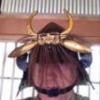

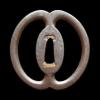
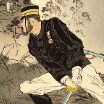



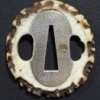




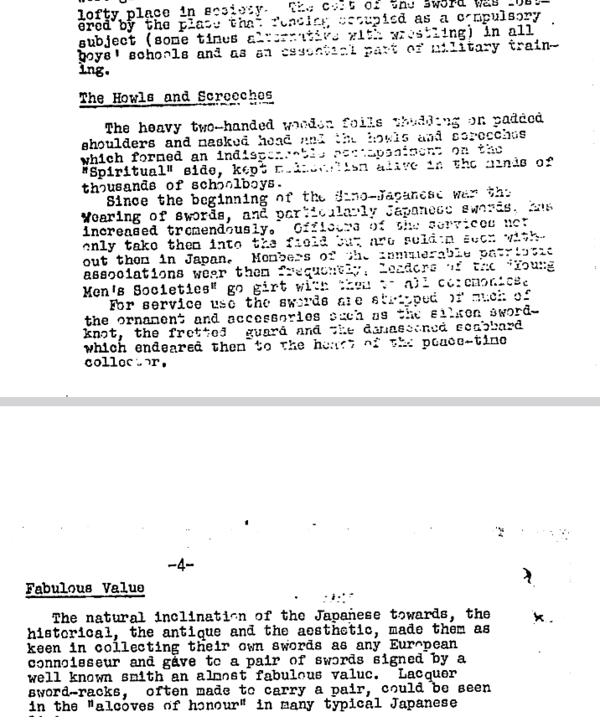

















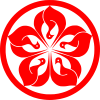
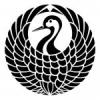
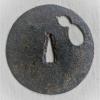
.thumb.png.4c5df79fec171b2dc4a23af38e280a4d.png)
